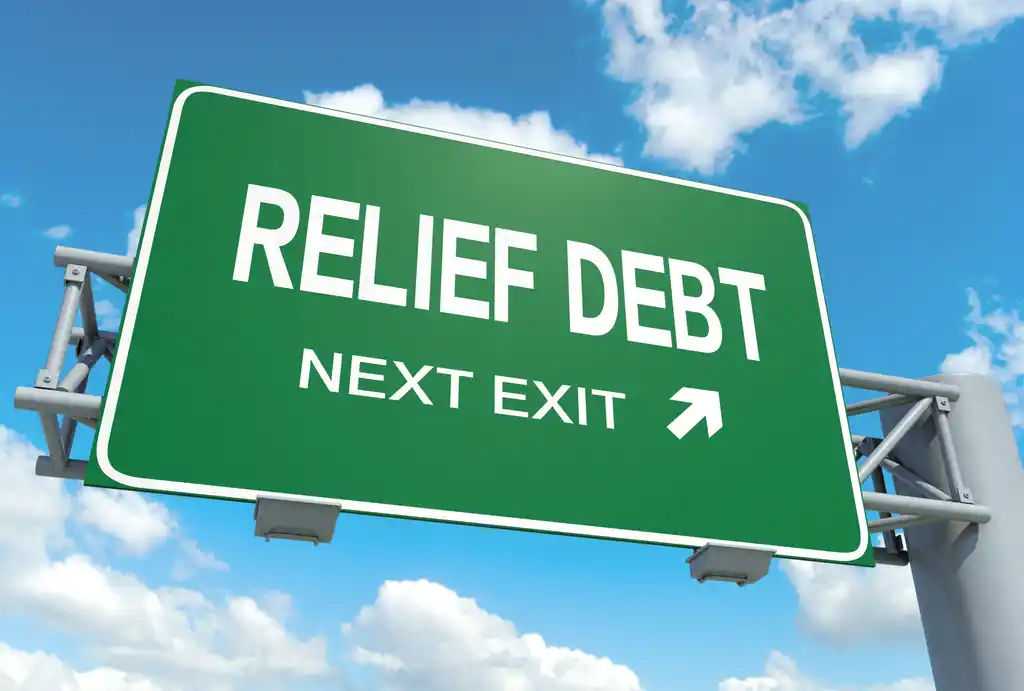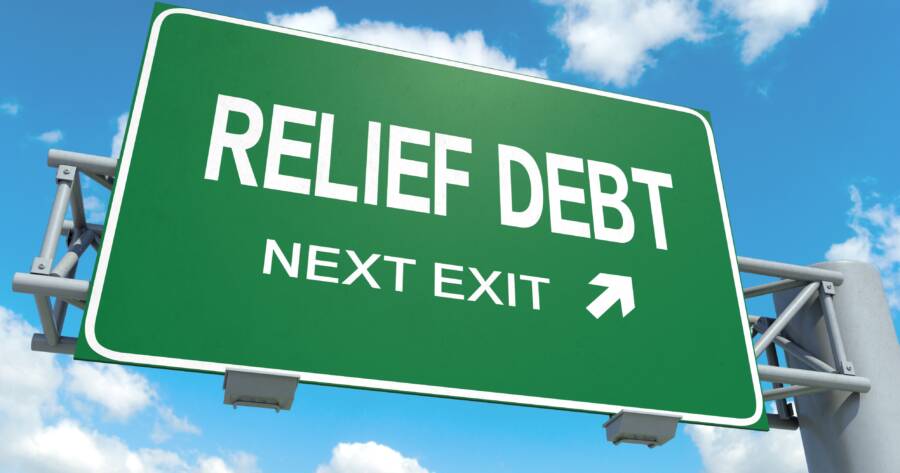Debt can leave you struggling to keep your head above water. Interest charges keep piling up and creditors start demanding payments. At a certain point, debtors become so saturated that it can seem mathematically impossible to ever become debt-free. People who find themselves in this situation often explore debt consolidation. That essentially combines all your various debts into a single loan that you can manage with one easy monthly payment.
While debt consolidation is convenient, it’s not necessarily the best option. Debt consolidations lenders are businesses, and businesses aim to make money. Thus, the terms they offer you will invariably be to their ultimate benefit, not yours. In some cases, the total amount you’ll pay over the life of a debt consolidation loan could even exceed what you would have paid to become debt-free without it. The good news is there’s an alternative — debt relief plans. These are well worth considering if you’re struggling to manage a heavy debt load.
What is Debt Relief and How Does it Work?
Debt relief programs are offered by agencies and companies that specialize in debt management and debt settlement. The terminology can be a little confusing. “Debt relief” is often interchanged with “debt management” and “debt settlement.” In essence, debt relief covers any strategy that helps you get out of debt. According to this definition, debt consolidation is technically a form of debt relief. So are credit card balance transfers that allow you to take advantage of lower interest rates. But in actual usage, debt relief usually refers to two specific approaches: debt management and debt settlement.
Debt Management
Consumers access debt management assistance through credit counseling agencies. These agencies will contact each of your creditors on your behalf, work out a realistic and affordable plan to pay down your debt, then manage the payments for you. You’ll only make a single monthly payment, and the agency will disburse the funds to your creditors for you.
Debt Settlement
Debt settlement works a little differently. By definition, these plans include agreements that allow you to settle the debt for less than you actually owe. Creditors would rather get, say, 50% or 75% of what you owe them rather than nothing — which is what they’d receive if you were forced to declare bankruptcy. When you opt for a debt settlement program, you’ll usually decide which of your debts you want to include. Consumers generally elect to settle their largest and most cumbersome debts while paying off smaller debt balances in full.
So, for the purposes of this discussion, we’re going to consider debt consolidation loans separately from debt relief. When we talk about debt relief, we mean strategies that use either debt management or debt settlement as the core approach. If you prefer though, you can find out more about debt consolidation right here.
Also, keep in mind that credit card debt is just one of many kinds of debt that qualify for management or settlement programs. You can also use these options to cover other debt that might have gone to a collection agency. Additionally, debt relief could work for personal loans, car loans, repossessions, and medical bills. However, student loans are not currently eligible.
What Are The Advantages of Debt Relief?
The major advantage of debt relief is that it can save you thousands of dollars compared to what you would pay to settle your debts through a consolidation loan. Many settlement programs offer consumers the option to make large, lump-sum payments covering a portion of your total balance. In exchange, the creditor will agree to forgive the remainder of the debt. You can free yourself from the massive interest charges that accrue on unpaid debts, which are often the single leading reason many people cannot lift themselves out of debt on their own.
Debt relief programs also offer a fast track to repairing your credit score. Consolidation loans often just keep you in debt for longer while drying up your debt-to-credit ratio. That keeps your credit rating wallowing in undesirable territory. Relief programs get you debt-free faster, which means you’ll be able to rebuild your credit score with much greater ease.
Are There Any Drawbacks to Debt Relief?
If you stay the course in a debt management program designed to repay 100% of your outstanding balance, there aren’t any major drawbacks compared to debt consolidation. They represent a much better option — one that protects your interests rather than acting to line the pockets of consolidators. While some consolidation programs offer reasonable terms, others do little more than present the illusion of offering a solution when they really just draw consumers deeper into debt.
Debt settlement, on the other hand, does have some down sides to consider. When you settle a debt for less than the actual amount you owe, a record of the transaction will appear on your credit reports. It will remain there for years, informing future lenders that you have a history of settling debts for less than the full amount. This can negatively impact your credit rating, limiting its ability to fully heal. Lenders may also be more reluctant to offer you future credit, even if you demonstrate greater levels of responsibility after settlement.
However, most personal finance experts still recommend settlement over consolidation for the simple reason that it will save you money in the long run.
The Last Word
If you do decide to explore debt relief as an alternative to debt consolidation, you should still perform careful due diligence. Compare the programs, terms, and conditions offered by at least three or four different agencies or relief providers. Weigh the relative merits and drawbacks of each option, and always consider the long-term impact of each proposal on your credit rating.
 Shutterstock
Shutterstock







